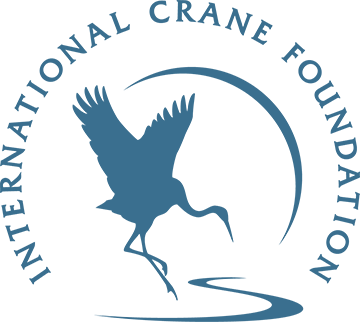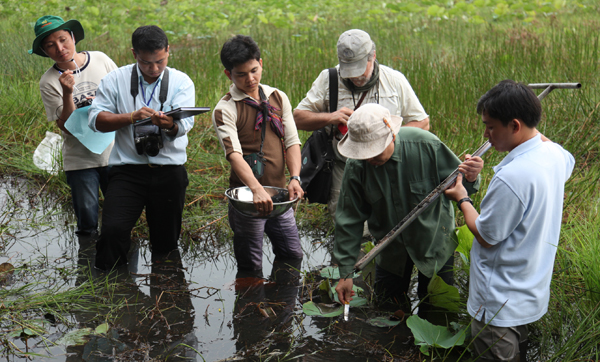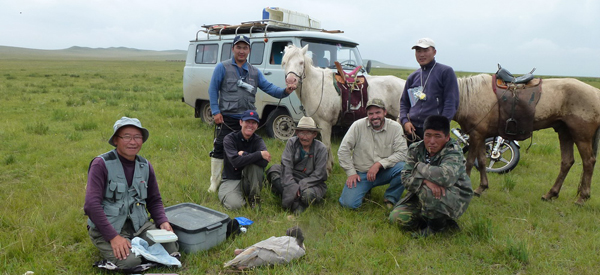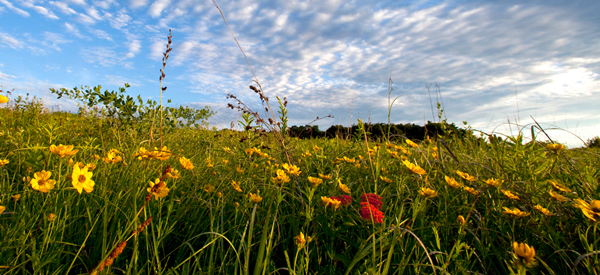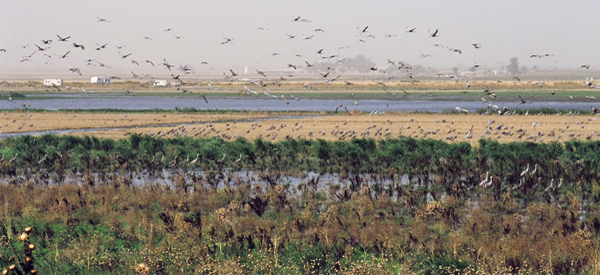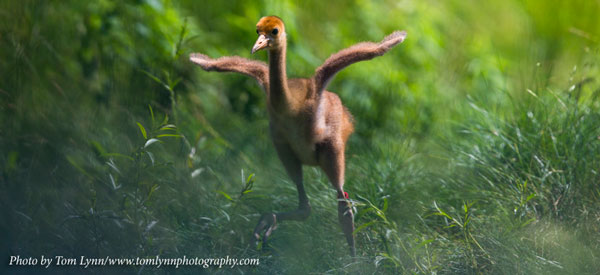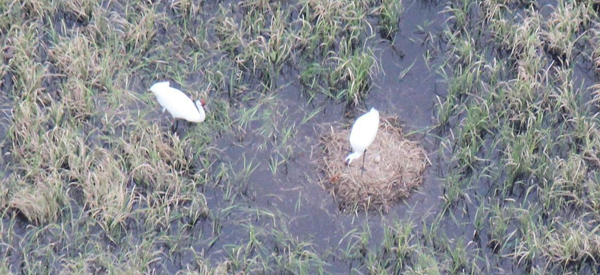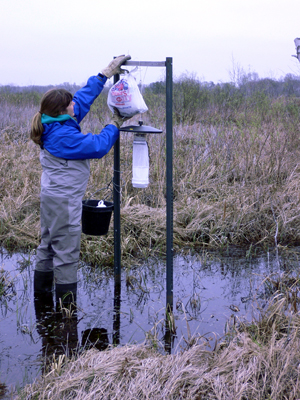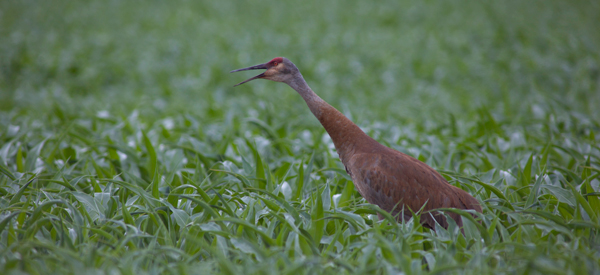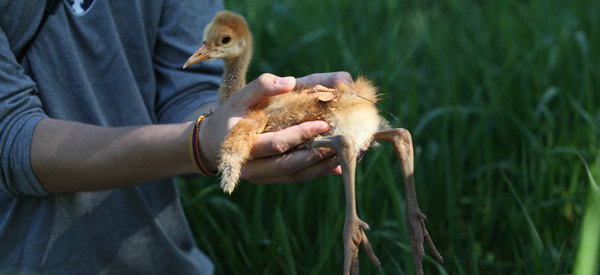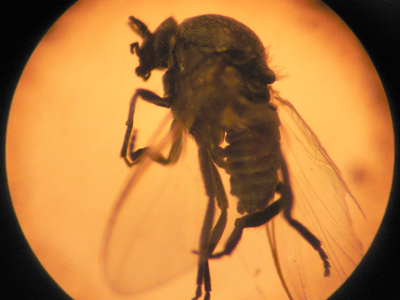
In July of 2010, the International Crane Foundation (ICF) was contacted by the US State Department with a request to survey Persistent Organic Pollutants (POPs) in the Mekong River Basin and to study the possible impact of POPs on human health and the environment.
Tag: Field Ecology
Unraveling the Mysteries of White-naped Crane Migration

This fall, an international team of conservationists and scientists from Mongolia, China, and the United States are tracking White-naped Cranes in East Asia to identify and protect the threatened cranes’ key breeding, migratory, and wintering habitat.
ICF Local Partner of Society for Ecological Restoration Conference

World renowned experts on ecological restoration will gather at Monona Terrace in Madison, Wisconsin on the afternoon of October 6 to launch the 5th World Conference on Ecological Restoration, “Reflections on the Past, Directions for the Future.” Local partners include the University of Wisconsin-Madison Arboretum, The Nelson Institute for Environmental Studies, the Aldo Leopold Foundation, and the International Crane Foundation.
ICF Research Informs Water Development in California
 A proposed project to re-route Sacramento River water around the Sacramento-San Joaquin Delta to southern California has created controversy about the project’s impact on wildlife habitat, including critical wintering areas for Sandhill Cranes. Since 2010, ICF Research Associate Gary Ivey has been a sub-consultant on the project, providing research data and recommendations to help lessen the impact on cranes and their habitats.
A proposed project to re-route Sacramento River water around the Sacramento-San Joaquin Delta to southern California has created controversy about the project’s impact on wildlife habitat, including critical wintering areas for Sandhill Cranes. Since 2010, ICF Research Associate Gary Ivey has been a sub-consultant on the project, providing research data and recommendations to help lessen the impact on cranes and their habitats.
ICF's Whooping Crane Chicks Cast for Critical Role in the Wild
 The International Crane Foundation (ICF) has nine Whooping Crane chicks for this year’s Direct Autumn Release (DAR) Program, a release method that relies on older Whooping Cranes to lead the chicks south in the fall. ICF is one of only five captive breeding centers in the world focused on raising endangered Whooping Cranes for release into the wild.
The International Crane Foundation (ICF) has nine Whooping Crane chicks for this year’s Direct Autumn Release (DAR) Program, a release method that relies on older Whooping Cranes to lead the chicks south in the fall. ICF is one of only five captive breeding centers in the world focused on raising endangered Whooping Cranes for release into the wild.
Wild Whooping Crane Chick Hatches in Central Wisconsin
 The Whooping Crane Eastern Partnership (WCEP) is celebrating another success in its efforts to reintroduce a wild migratory Whooping Crane population in eastern North America. A Whooping Crane chick hatched yesterday in Marathon County, Wis.
The Whooping Crane Eastern Partnership (WCEP) is celebrating another success in its efforts to reintroduce a wild migratory Whooping Crane population in eastern North America. A Whooping Crane chick hatched yesterday in Marathon County, Wis.
Partnership Study on Nesting Success of Eastern Migratory Whooping Cranes
 Black flies may be responsible for a high number of Whooping Cranes abandoning their nests in the core reintroduction area in central Wisconsin. To test this hypothesis, the Whooping Crane Eastern Partnership (WCEP), the coalition of public and private groups that is reintroducing Whooping Cranes to eastern North America, has been conducting a multi-year study to examine the causes of nest abandonment.
Black flies may be responsible for a high number of Whooping Cranes abandoning their nests in the core reintroduction area in central Wisconsin. To test this hypothesis, the Whooping Crane Eastern Partnership (WCEP), the coalition of public and private groups that is reintroducing Whooping Cranes to eastern North America, has been conducting a multi-year study to examine the causes of nest abandonment.
ICF Plants the Seed for Solving Crane-Related Crop Damage
 An effective solution for damage that Sandhill Cranes cause to planted corn seeds has been used in record amounts during the just-completed 2012 planting season and represents a win-win solution for both conservation and agriculture. Developed by the International Crane Foundation (ICF) and Arkion LLC, Avipel® has been available to farmers since 2006.
An effective solution for damage that Sandhill Cranes cause to planted corn seeds has been used in record amounts during the just-completed 2012 planting season and represents a win-win solution for both conservation and agriculture. Developed by the International Crane Foundation (ICF) and Arkion LLC, Avipel® has been available to farmers since 2006.
Linking Rural and Suburban Sandhill Cranes
 Since 1990, ICF has banded over 400 Sandhill Cranes in central Wisconsin, one of the densest nesting populations of cranes known anywhere in the world (we annually track around 60 breeding territories in our 6,400 ha study area). The small leg bands and radio transmitters, the latter placed on a select number of cranes, allow our staff to identify and track individual birds – once we can identify individuals, we can follow their movements, form hypotheses about their behaviors, and test these ideas in the field.
Since 1990, ICF has banded over 400 Sandhill Cranes in central Wisconsin, one of the densest nesting populations of cranes known anywhere in the world (we annually track around 60 breeding territories in our 6,400 ha study area). The small leg bands and radio transmitters, the latter placed on a select number of cranes, allow our staff to identify and track individual birds – once we can identify individuals, we can follow their movements, form hypotheses about their behaviors, and test these ideas in the field.
Black Flies, Fake Nests and Planes!
 ICF’s Field Ecology Department (FED) staff are continuing their study of nesting Whooping Cranes in central Wisconsin and factors that may lead to nest abandonment. One hypothesis is that biting black flies may be harassing the cranes, to the extent that the birds cannot remain on their nest for the full 30-day incubation period. Following is an account of our spring research involving black flies, insect traps and fake nests, and planes!
ICF’s Field Ecology Department (FED) staff are continuing their study of nesting Whooping Cranes in central Wisconsin and factors that may lead to nest abandonment. One hypothesis is that biting black flies may be harassing the cranes, to the extent that the birds cannot remain on their nest for the full 30-day incubation period. Following is an account of our spring research involving black flies, insect traps and fake nests, and planes!
